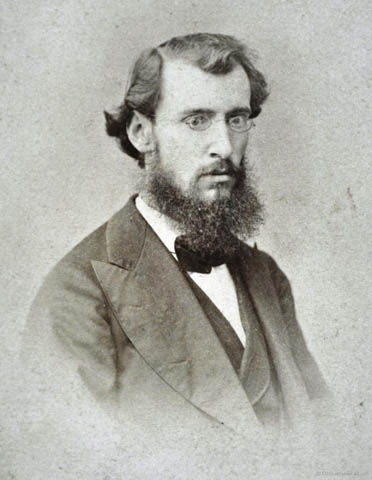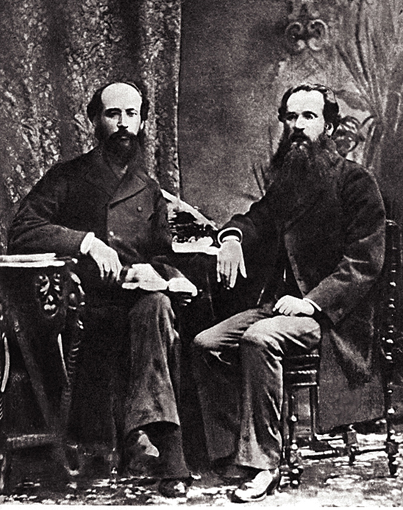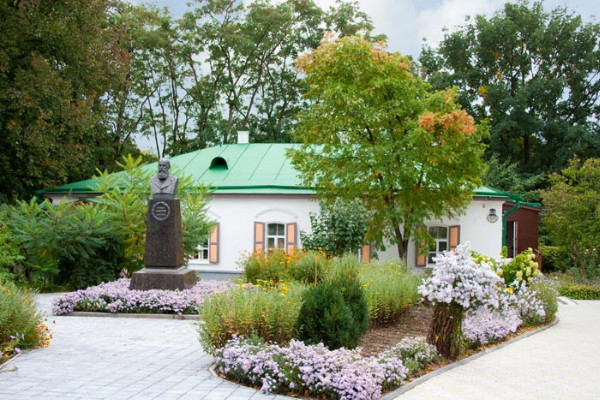Myrny, Panas
Myrny, Panas [Myrnyj; pseudonym of Panas Rudchenko], b 13 May 1849 in Myrhorod, Poltava gubernia, d 28 January 1920 in Poltava. Writer. He worked in various government offices and eventually achieved the rank of full government councilor (1914). The works of Taras Shevchenko had the greatest influence on the formation of Myrny’s worldview, artistic preferences, and ideology. His early literary attempts included poems, dramas, and short stories. In 1872 the short story ‘Lykhyi poputav’ (The Evil One Did It), written in the style of Marko Vovchok, was printed in the Lviv journal Pravda. In 1877 appeared his novel Lykhi liudy (Evil People), about the life of the intelligentsia. His best-known work is the novel Propashcha syla (The Ruined Strength), also titled Khiba revut’ voly, iak iasla povni? (Do the Oxen Bellow, When Their Mangers Are Full?, 1880), which he coauthored with his brother, Ivan Rudchenko (pseudonym: Ivan Bilyk). The work can be characterized as a sociopsychological novel-chronicle; it covers almost a hundred years in the history of a Ukrainian village, from serfdom to the postreform era. In it Myrny depicts social oppression, internal strife between different social groups, the tsarist legal system, the harsh life of a soldier during the time of Tsar Nicholas I, police violence, and spontaneous protests against lies and injustice. Myrny’s second important sociopsychological novel, Poviia (Loose Woman, 1884), describes new social processes brought about by the reforms of 1861. Myrny also portrayed the changed social dynamics of the village after the abolition of serfdom in the story ‘Lykho davnie i s'ohochasne’ (Ancient and Contemporary Evil, 1903) and ‘Sered stepiv’ (Among the Steppes, 1903). Myrny also wrote some dramatic works, the comedies Peremudryv (He Outsmarted [Them], 1886) and Zhuba (Loss, 1896), and the dramas U chernytsiakh (Among the Nuns, 1884) and Spokusa (Temptation, 1901). The most popular drama was Lymerivna (The Daughter of the Harness Maker, 1883), which was first published in 1892 in the journal Zoria (Lviv). He is also known as the translator of Henry Wadsworth Longfellow’s poem The Song of Hiawatha and of William Shakespeare’s King Lear. Myrny markedly expanded the lexicon of the literary Ukrainian language and with his talent for rhythmic and melodious phrasing enriched Ukrainian syntax.
BIBLIOGRAPHY
Ievdokymenko, V. Suspil’no-politychni pohliady Panasa Myrnoho (Kyiv 1955)
Syvachenko, M. Istoriia stvorennia romana ‘Khiba revut’ voly, iak iasla povni’ (Kyiv 1957)
Hrytsiutenko, I. Mova ta styl’ khudozhnikh tvoriv Panasa Myrnoho (Kyiv 1959)
Pyvovarov, M. Maisternist’ psykholohichnoho analizu: (Roman ‘Poviia’ Panasa Myrnoho (Kyiv 1960)
Cherkas’kyi, V. Khudozhnii svit Panasa Myrnoho (Kyiv 1989)
Petro Odarchenko
[This article originally appeared in the Encyclopedia of Ukraine, vol. 3 (1993).]



.jpg)